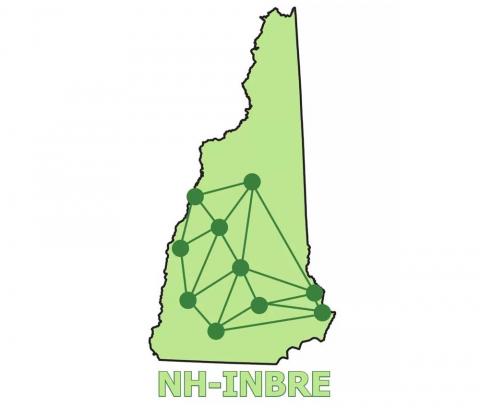Server Infrastructure
RON
Our state-of-the-art teaching server. Designed and setup to provide students experience working on a cutting-edge bioinformatics server. The software setup on RON is mostly the same as our research servers.
- 2 x Xeon E5-2695 v4, totaling 36 physical or 72 virtual cores
- 512 GB ECC RAM
- 44 TB RAID array
PREMISE
Our state-of-the-art research server. The Premise core infrastructure is provided for UNH researchers. The Premise core infrastructure includes: racks, power distribution, cooling, InfiniBand Network mesh, Lustre file storage, a head node and four compute nodes. You may thank; UNH RCC, UNH Central IT, and the Research Office for providing this infrastructure.
- 48 compute nodes connected together using 56 Gb FDR Infiniband networking
- All compute nodes have at least two 12-core CPUS
- 34 nodes have 24 cores per node from dual 12 core CPUs
- 11 nodes have 40 cores per node from dual 20 core CPUs
- 2 nodes have 32 cores per node from quad 8 core CPUs
- All compute nodes have at least 128GB of main memory
- One compute node has 192GB of main memory
- Four compute nodes have 384GB of main memory
- Eight compute nodes have 512GB of main memory
- Six compute nodes have 768GB of main memory
- Two compute nodes have 1TB of main memory
- Ten compute nodes have NVidia K80 GPUs
- All compute nodes have at least two 12-core CPUS
- Shared Cluster storage
- 225TB+ of usable Lustre storage.
- 213TB uncompressed BeeGFS on ZFS storage
- 160TB uncompressed ZFS archive/backup storage
UNH Data Science Core
You can request statistical and bioinformatic services through the UNH DSC.
https://sites.usnh.edu/data-science-core/
Workshop Training
The HCGS provides bioinformatics training and support. Project support is available based upon consultation. Our sequencing and bioinformatic workshops cover a wide range of NGS workflows and includes training in the command-line environment and with Python, BASH, and R programming.
Example workshops
Bioinformatics T3: Train The Trainers
UNH Tech Camp
BITMaB [Benthic Invertebrates Taxonomy, Metagenomics, and Bioinformatics Workshop]
Qiime2

NH-INBRE Sponsored Workshops
The NH-INBRE program supports the UNH Bioinformatics Core facility that provides bioinformatics services to the NH-INBRE community. Dr. Kelley Thomas leads the Bioinformatics Core facility at UNH. This facility provides NH-INBRE participants with access to outstanding, state-of-the-art computing for genomic analysis, on site training modules in genomics and bioinformatics, deep DNA sequencing, gene expression, and many other important biomedical research tools.
Gulf of Mexico Research Initiative
The Gulf of Mexico Research Initiative (GoMRI) will investigate the impacts of the oil, dispersed oil, and dispersant on the ecosystems of the Gulf of Mexico and affected coastal States in a broad context of improving fundamental understanding of the dynamics of such events and their environmental stresses and public health implications. The GoMRI will also develop improved spill mitigation, oil and gas detection, characterization and remediation technologies.

The ultimate goal of the GoMRI will be to improve society’s ability to understand, respond to and mitigate the impacts of petroleum pollution and related stressors of the marine and coastal ecosystems, with an emphasis on conditions found in the Gulf of Mexico. Knowledge accrued will be applied to restoration and to improving the long-term environmental health of the Gulf of Mexico.